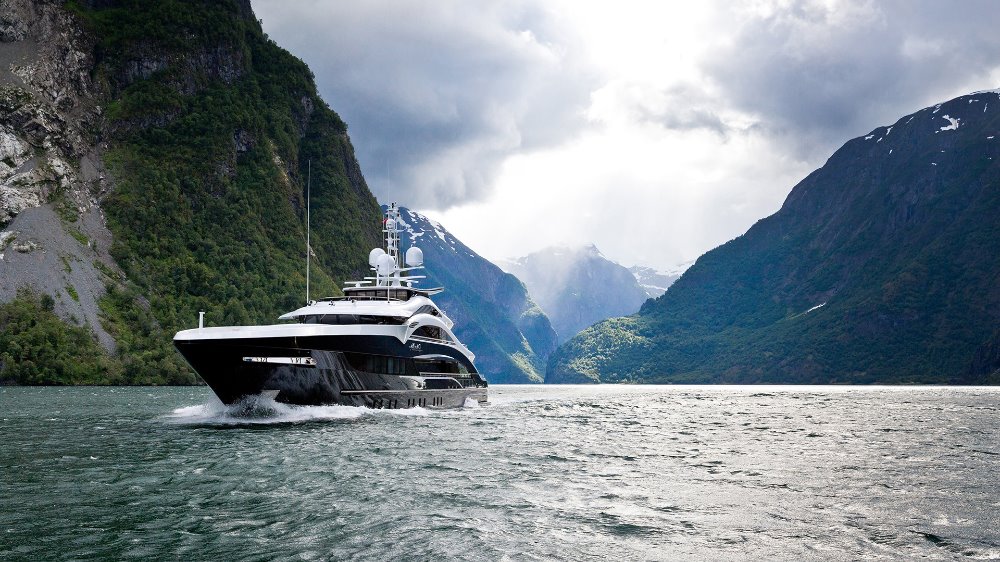SuperyachtNews COVID-19 Advisory - HFW Briefing
HFW, the superyacht legal specialist, shares its advice on force majeure and various impacts on industry sectors…
The yachting industry, like most, has been hit hard by the rapid spread of the coronavirus disease 2019 (COVID-19) across Europe and America. However, whilst enquiries for new charters and second hand sales have significantly reduced and travel restrictions in several countries currently make yacht operation difficult, most large yachts remain fully crewed and operational and, where possible, yachts continue to prepare for the 2020 season. For now, at least, the hope remains that the outbreak can be brought under control and something can be salvaged from the forthcoming season.
With a few months before the Mediterranean season is due to commence in earnest, many yacht owners are adopting a wait and see approach. However, how long this lasts will depend on how quickly the situation can be stabilised and we are already beginning to see the legal fall-out from it. Amongst other things, yacht owners are considering their employment arrangements and preparing to lay up yachts, some charterers have begun to look for ways to cancel their charters and some yacht builders are notifying buyers of force majeure related delays.
In this briefing we outline some of the issues we are currently seeing as we work with clients across the yachting industry to help them minimise the impact of the outbreak and prepare for what’s next. Should you wish to discuss these issues or anything else, please contact a member of the HFW yacht team, full details of which can be found at www.hfwyachts.com.
We are continually monitoring the developing COVID-19 outbreak and implementing contingency plans to protect our colleagues, clients and everyone in the HFW community. We have systems in place to allow remote working across our international network, and want to reassure you that we continue to be fully available for you during this difficult time.
Force Majeure and frustration
Seldom has force majeure been more widely considered. However, whilst, in principle, the pandemic status of COVID-19 and the various directives and emergency laws emanating from national and regional governments are, together, likely to amount to a force majeure event, whether a party can rely on this to claim permissible delay or terminate a contract depends entirely on the contract in question.
We look at the use of force majeure in the context of charters, sale agreements and yacht building, refit and repair contracts in turn below, but it is first worth noting that whether a contract gives a party a right to claim force majeure and, if it does, how a force majeure event is defined, is critical. Not all contracts contain force majeure provisions and those that do, approach it in different ways. In the current circumstances, a party may not be able to fall back on the commonly found “act of god” language because this covers natural phenomena and not circumstances that involve human agency. Although this situation may fall within other commonly found catchall language, this will need to be carefully considered on a contract-by-contract basis. Specific references in a force majeure provision are the most useful: for example, where force majeure is defined to include delay caused by “pandemic” or equivalent, but this is rare. In any event, a party to a contract is unlikely to be faced by delay caused by COVID-19 itself, but rather by government measures implemented in response to the virus. It might, therefore, be possible to rely on “actions or regulations of government” or other similar language, which is frequently encountered in force majeure provisions.
Even where there is a force majeure provision on which a party might hang a claim for permissible delay, that party must still demonstrate how the force majeure event has directly affected its performance of the contract and ensure it complies with all notification obligations under the contract. The notification obligations can vary considerably and must be meticulously followed. We discuss below, in the section on yacht building delays, some practical steps that businesses can take when invoking a force majeure provision. This advice, with logical amendments, is equally applicable to all other contracts.
There is no general right to claim force majeure in English law and as a general rule, force majeure is strictly construed by the English courts. If there is no force majeure provision or a party does not have a right under a contract to claim force majeure (either because of the definition of force majeure or because the provision is not reciprocal), a party will not be able to claim permissible delay on the basis of it. In the alternative, they might consider seeking to rely on the legal remedy of frustration to set aside the contract. However, under English law, a contract will only be deemed frustrated, and therefore capable of being set aside, when an event renders it absolutely impossible to fulfil or transforms a party’s obligation into something radically different. A contract will not be deemed frustrated because the performance of an obligation has become more difficult or uneconomical and the bar to a successful claim of frustration is set high.
Charters
We are seeing charterers begin to try and cancel charters and yacht owners seeking advice in anticipation of attempts to cancel charters. The parties’ respective rights and obligations will vary depending on the terms of the charter and should be looked at on a case-by-case basis. However, since the vast majority of yacht charters are fixed on the terms of the Charter Agreement published by the Mediterranean Yacht Brokers Association (MYBA), it is worth considering the position under the standard form MYBA Charter Agreement.
Under the MYBA Charter Agreement, a charterer may cancel its charter at any time without reason, although, when doing so, they will be liable to pay (i) the first instalment / deposit and (ii) any further instalment of charter hire due at the time of cancellation. Charterers do not have a right to cancel for force majeure.
Where a charter is cancelled, a yacht owner is obliged to mitigate the charterer’s costs and losses by attempting to re-charter the yacht. However, in the current climate, the yacht owner is unlikely to be able to secure a replacement charter. Nonetheless, yacht owners should remain alive to their obligation to mitigate, even in these challenging times, and continue to properly advertise and make their yachts available for public hire.
Yacht owners should also consider their own obligations where a charter has not been cancelled. For example, if it becomes impossible to deliver the yacht to the charterer at the beginning of the charter period because of a force majeure event, the yacht owner will be required to refund to the charterer any amounts paid under the charter, but it will not be liable for any further damages.
In an attempt to give potential charterers the comfort they need to book a charter, MYBA have recently published a template COVID-19 addendum to the standard form. It remains to be seen whether this addendum can turn the tide in cancellations and in the meantime we continue to draft bespoke addendums and contract clauses for our clients designed to reassure yacht owners and charterers.
Insurance
Many providers of goods and services to the industry will be considering whether or not their insurance gives them protection from the inevitable economic downturn. Some, but by no means all, will have taken out business interruption insurance. Such insurance is designed to cover a business for a loss of income during a period in which they cannot operate as normal as a result of an insured event.
Business interruption insurance, if triggered, seeks to put the assured in the position they would have been in had the event not occurred. However, it will usually only be triggered by property damage and is unlikely to be relevant in these circumstances.
The marine equivalent of business interruption cover is loss of hire insurance. Whilst the owners of some commercially operated yachts take out such cover, it is not in our experience commonly procured in yachting. In any event, like business interruption insurance, loss of hire insurance is generally only available in the case of an event causing property damage.
There are some policies that will extend cover beyond physical damage, but these are rare and few of them cover losses arising out of a pandemic and/or specific acts of governments.
There have been reports from the United States of arguments being raised in recently commenced proceedings that COVID-19 does in fact cause physical property damage. This is being argued on the basis that contamination from toxic substances has, in the past, been considered such by courts around the world, including in the United States, England, Australia and France. However, this argument rarely succeeds and the physical damage requirement remains an enormous hurdle. If a policy specifically excludes damage from contamination or pandemic or another applicable event, this argument will be undermined further.
We are aware that certain jurisdictions are considering passing emergency legislation with the effect of allowing businesses, in certain circumstances, to make a claim under their business interruption policies where they would not have otherwise been able to do so. This is a very controversial initiative and its success remains to be seen.
In any case, we urge you to review your wording and if the position is still unclear, contact your insurer or insurance broker.
Sale and purchase
As noted above, enquiries in the second-hand sale market will have vastly reduced and we are seeing some ongoing transactions delayed and attempts being made to cancel them.
Most delays are caused by travel restrictions preventing the undertaking of surveys and sea trials and/or the changeover of crews, but whether or not this is enough to give rise to a claim for permissible delay or even allow the cancellation of a sale agreement depends on the terms of the agreement in question.
Most yachts, at least in Europe, are sold on the terms of the standard form MYBA Memorandum of Agreement (MOA). Unlike its commercial cousin, the Norwegian Sale Form, which does not have a force majeure provision, the MYBA MOA does. This provision allows for the reasonable extension of the dates set out in the MOA if performance is delayed by a force majeure event, which amongst other things includes a “government act or regulation”. It is therefore likely that the travel restrictions currently being imposed by governments would give rise to a right to claim force majeure under the MYBA MOA, provided always that any delay to performance is directly caused by such force majeure event and the parties use reasonable endeavours to minimise such delay. There is no right of cancellation under the MYBA MOA for extended delay caused by a force majeure event.
Yacht-building, refit and repair
Whilst the current situation will be deemed a force majeure event under many yacht building, and refit and repair contracts, it is important to remember that the shipyard is not automatically entitled to claim permissible delay. It will have to demonstrate the impact the situation has had on each project individually, and show that a delay has indeed been caused. The shipyard will also need to comply with all contractual notice obligations. Under many contracts, a failure to comply with these obligations would negate the shipyard’s right to claim permissible delay. Further, giving notice is only the first step and shipyards will have to look at the specific circumstances of each project and be prepared to justify their claim and demonstrate their efforts to mitigate any losses or delays.
We recommend that those affected by COVID-19 keep real-time, daily records of how each project is affected. It should be remembered that any dispute is likely to arise only nearer delivery/re-delivery and having contemporaneous records of the delays caused and the steps taken to mitigate them will be invaluable in support of any claim for permissible delay. We also recommend that, no matter the terms of the contract, those seeking to claim force majeure make every effort to keep their clients regularly updated. Again, this will be useful if there is a dispute and in the meantime help manage expectations and give the parties an opportunity to discuss how the situation might be mitigated.
Crewing
The impact of this unprecedented situation on yacht crew should not be understated. The instinct of many is to return home but most jurisdictions have implemented particularly restrictive rules for seafarers transiting their jurisdiction and returning home and regard to all national and local travel restrictions must be had.
Yacht owners are asking for legal advice in relation to potential cost cutting measures, including laying up yachts and laying off crew if the situation does not improve in the near future. Our employment team are advising several yacht owners and managers on crewing issues, including rotation problems, repatriation arrangements, redundancy and regulatory compliance. We are aware that Nautilus and other seafarers’ representatives are actively reminding their members of their rights, both under their seafarers employment agreements and, where applicable, the Maritime Labour Convention (MLC).
The MLC requires the owners of those yachts to which it applies to provide their crew with adequate measures for the protection of their health, access to prompt and adequate medical care and financial assistance in the event of sickness or death. Even where the MLC does not apply, such matters are commonly provided for in seafarers’ employment agreements and in national legislation.
Well-managed yachts will have in place adequate measures to safeguard crew from the virus and respond should a crew member become ill. Where such measures have not been developed, we recommend yacht owners work with their captains and managers to draw up plans incorporating preventative measures, response procedures (including medical assistance and/ or isolation) and advice to crew in line with that of the World Health Organisation.
Yacht owners should also take into account local guidance. For example, whilst the MLC requires that crew have ready access to medical care, some countries are advising people with suspected COVID-19 against going to doctors’ surgeries or hospitals. In some cases, national guidance is rigidly enforced and its breach may carry penalties. Yacht owners and captains must make all efforts to become familiar with the applicable rules and guidance.
Navigation
Various states have imposed restrictions and additional regulatory requirements on vessels entering their waters or calling at their ports. The authorities in Italy and Monaco require yachts to, amongst other things, complete a maritime health declaration ahead of arrival and late last week the Spanish authorities banned all recreational vessels, pleasure or commercial from entering the ports of the Balearic Islands, regardless of where they came from. Disembarkation may be allowed in exceptional circumstances.
The situation is constantly changing and requires close attention with further restrictions expected on a daily basis around the world and some restrictions even applying to yachts passing through but not stopping in territorial waters. Any yacht contemplating a voyage is well advised to keep a close watch on the regulations in all port and coastal states they expect to pass through and be ready to accommodate rapid changes.
In the coming weeks, yacht owners are also likely to face difficulties as some crews are depleted by illness leaving those that remain onboard, potentially unable to meet the safe manning requirements of a yacht’s flag state and insurer. Whilst in the circumstances waivers may be available, it will be far better to seek such waiver as soon as it becomes apparent that it might be needed than try and seek forgiveness after an event.
Yacht finance
Finally, whilst we are not yet aware of any defaults being triggered or even considered by lenders to yacht owners as a result of the outbreak, we are seeing the first of such moves in commercial shipping and those yacht owners with financing secured against their yachts should be alive to the possibility that some lenders might, in due course, use this as an opportunity to look at whether a default has been triggered under the material adverse change (MAC) provisions of their loan agreement. In the alternative, where the facility is linked to private wealth management arrangement, the minimum assets under management (AUM) covenant might be reviewed.
MAC clauses are usually negotiated so will vary in each case; however, they are generally included to cover unforeseen events that may affect a borrower’s ability to continue to service their loan or the financed asset, or the enforceability of the security. In the current situation, a MAC default could potentially be triggered if a lender had grounds to conclude that the yacht owner would soon be unable to repay and service their loan and/or maintain the yacht in line with the loan covenants, perhaps because of a significant drop in cash flow from their underlying business interests or charter income. In the case of AUM covenants, a drop in value of equity investments could trigger a call to deposit more assets with the financier.
Given the nature of the current situation, we expect that financiers will be strongly influenced by a desire to preserve their own reputation and will likely strive to work constructively with most yacht owners through any short-term difficulties, rather than look immediately at enforcement options. In the medium term however, if payment defaults begin to occur, financiers may be forced into taking a more robust approach.
Conclusion
The situation is rapidly evolving and this briefing is based only on what we are seeing in the industry at the time of publishing. Each contract, matter or dispute must be looked at on a case-by-case basis and this briefing is, therefore, deliberately general in its nature. Whilst the situation we all find ourselves in is unprecedented, it is to be hoped that it will pass quickly. We are working as normal and remain available for our clients and committed to supporting them both in dealing with the current situation and the long term recovery after this pandemic passes.
Throughout the COVID-19 Pandemic, SuperyachtNews is dedicated to providing the superyacht industry with the most up to date and practical information available. If you have a piece of key advisory content that you would like to share with the market, please contact rory@thesuperyachtgroup.com.
Profile links
NEW: Sign up for SuperyachtNewsweek!
Get the latest weekly news, in-depth reports, intelligence, and strategic insights, delivered directly from The Superyacht Group's editors and market analysts.
Stay at the forefront of the superyacht industry with SuperyachtNewsweek
Click here to become part of The Superyacht Group community, and join us in our mission to make this industry accessible to all, and prosperous for the long-term. We are offering access to the superyacht industry’s most comprehensive and longstanding archive of business-critical information, as well as a comprehensive, real-time superyacht fleet database, for just £10 per month, because we are One Industry with One Mission. Sign up here.
Related news
A catalyst for creativity
Remote working seems to be a method which some designers are taking in their stride, and seeing the positive effects
Fleet
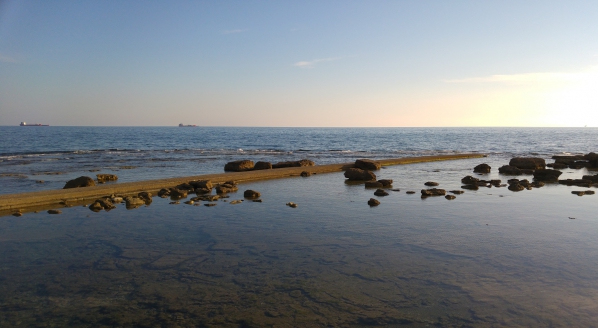
Life on board during a pandemic
SuperyachtNews spoke to Captain Lars Hojegaard about current life on board in Livorno
Crew
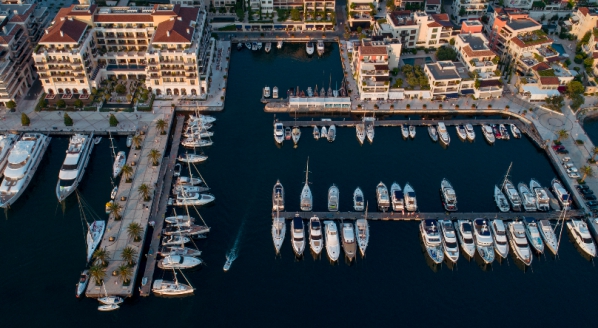
Forget your virtual reality
Porto Montenegro implements innovative solution in light of COVID-19 restrictions
Business
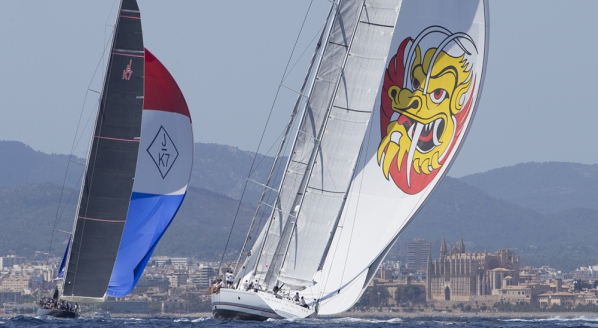
Superyacht Cup Palma cancelled
This year's edition of the superyacht regatta has been cancelled in response to the COVID-19 pandemic
Owner
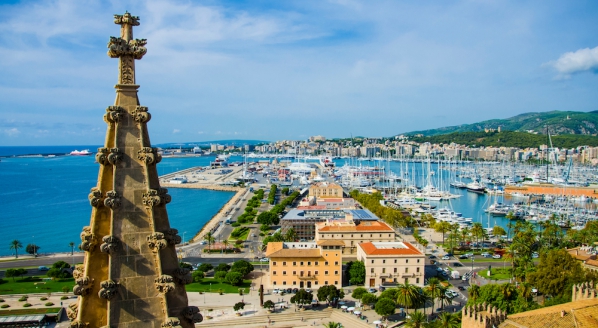
Spain’s state of alarm and its impact on arriving superyachts
Miguel Ángel Serra, partner at Albors Galiano Portales, advises yachts entering Spain of the current restrictions
Business
Related news
A catalyst for creativity
5 years ago
Life on board during a pandemic
5 years ago
Forget your virtual reality
5 years ago
Superyacht Cup Palma cancelled
5 years ago
NEW: Sign up for
SuperyachtNewsweek!
Get the latest weekly news, in-depth reports, intelligence, and strategic insights, delivered directly from The Superyacht Group's editors and market analysts.
Stay at the forefront of the superyacht industry with SuperyachtNewsweek


